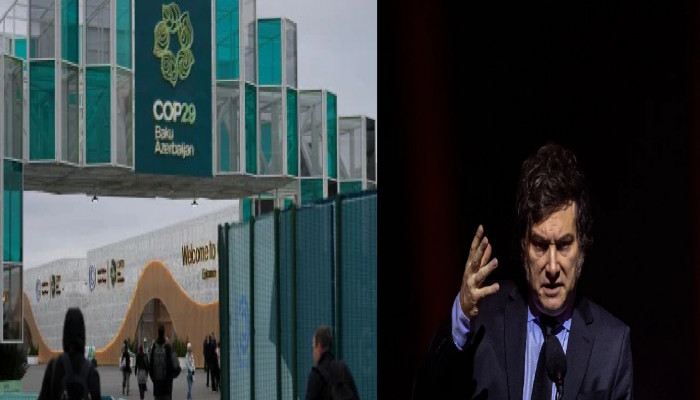COP29: Financial pressure mounts on wealthy nations to support climate goals
- In Reports
- 05:22 PM, Nov 14, 2024
- Myind Staff
At the COP29 climate summit in Azerbaijan, negotiators were urged on Thursday to secure substantial financial commitments now to help poorer nations manage climate change, or face even steeper costs in the future. Experts estimate that developing countries will need at least $1 trillion annually by the end of the decade to transition to green energy and guard against climate-driven disasters.
The focus on climate finance is expected to define the success of COP29, with participating nations under pressure to agree on a new annual funding target that would go beyond the previous commitment of $100 billion per year, which expires in 2025. The Organisation for Economic Cooperation and Development (OECD) confirmed earlier this year that the $100 billion target was only met in 2022—two years late, and largely in the form of loans rather than grants, which poorer countries have criticised as insufficient.
The Independent High-Level Expert Group on Climate Finance released a report warning that any funding shortfalls before 2030 will require even greater investment afterwards. “The less the world achieves now, the more we will need to invest later,” the report stated, urging that the target rise to $1.3 trillion a year by 2035, or possibly more.
Behind closed doors, negotiations continue on drafting a financial agreement, though early-stage documents from the United Nations reveal divergent views. Some negotiators have even expressed frustration with the length of the initial drafts, hoping for more concise versions to streamline discussions.
The funding challenge is compounded by reluctance from Western governments to contribute more unless major economies like China join in the financial commitments. Further complicating matters, incoming U.S. President Donald Trump’s expected withdrawal from any new climate funding deal has left negotiators exploring alternative funding sources, including multilateral development banks like the World Bank. These institutions, supported by wealthier nations, are undergoing reforms to boost their lending for climate initiatives. A group of 10 major development banks has already announced plans to raise their climate finance to $120 billion annually by 2030, aiming to leverage an additional $65 billion from private sector sources.
Proposals to tax high-emission industries, such as fossil fuels, aviation, and shipping, have gained traction among some countries, though a consensus remains unlikely during this summit.
Azerbaijan's commitment to green transition was underscored by Zakir Nuriyev, head of the Association of Banks of Azerbaijan, who announced that 22 banks in the country would commit nearly $1.2 billion to support Azerbaijan’s shift to a low-carbon economy.
Amid the negotiations, diplomatic tensions surfaced. France's climate minister, Agnès Pannier-Runacher, cancelled her visit to COP29 on Wednesday after Azerbaijan's President Ilham Aliyev accused France of committing “crimes” in its overseas Caribbean territories, adding, “The voices of these communities are often brutally suppressed by the regimes in their metropolis.” Relations between France and Azerbaijan have been tense for years due to Paris' support for Armenia, Azerbaijan’s regional rival.
In response, EU Climate Commissioner Wopke Hoekstra posted on X that "regardless of any bilateral disagreements, the COP should be a place where all parties feel at liberty to come and negotiate on climate action,” stressing that the COP Presidency has a responsibility to foster a welcoming environment.
Aliyev had earlier criticised the U.S. and EU, accusing them of hypocrisy by advocating climate action while remaining major consumers and producers of fossil fuels.
In a separate incident, Argentina withdrew its negotiating team from COP29. Argentina’s embassy in Baku declined to comment, and while the reason for the withdrawal remains unclear, Argentina’s President Javier Milei has previously called global warming a “hoax.”







Comments